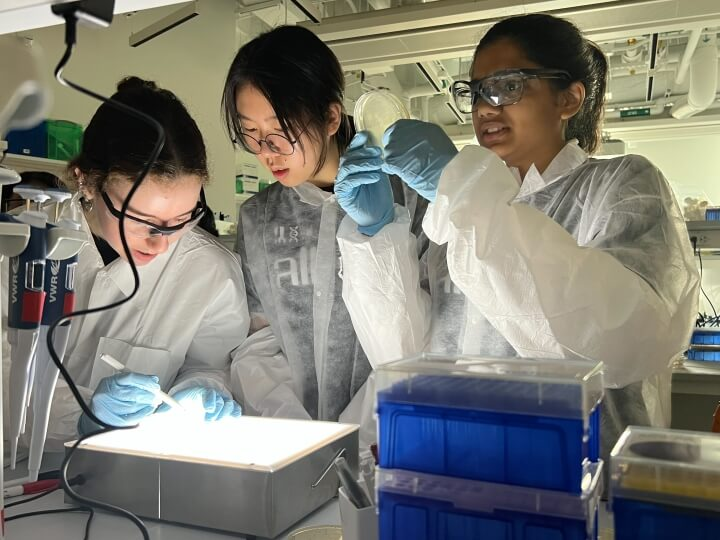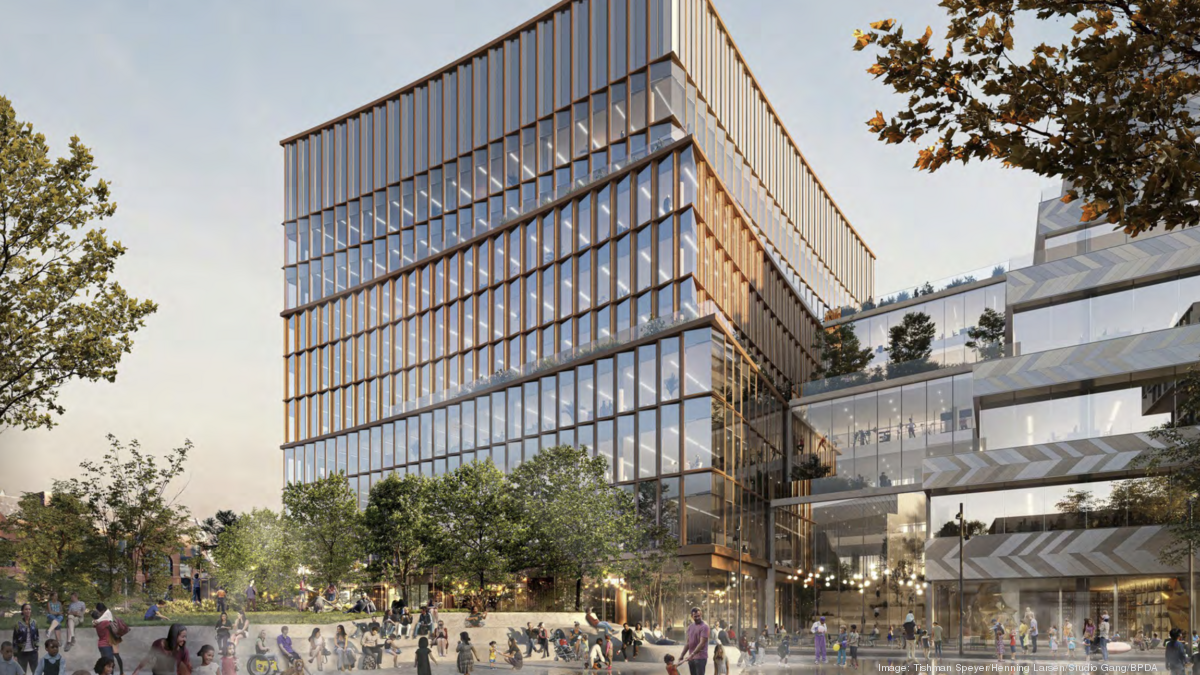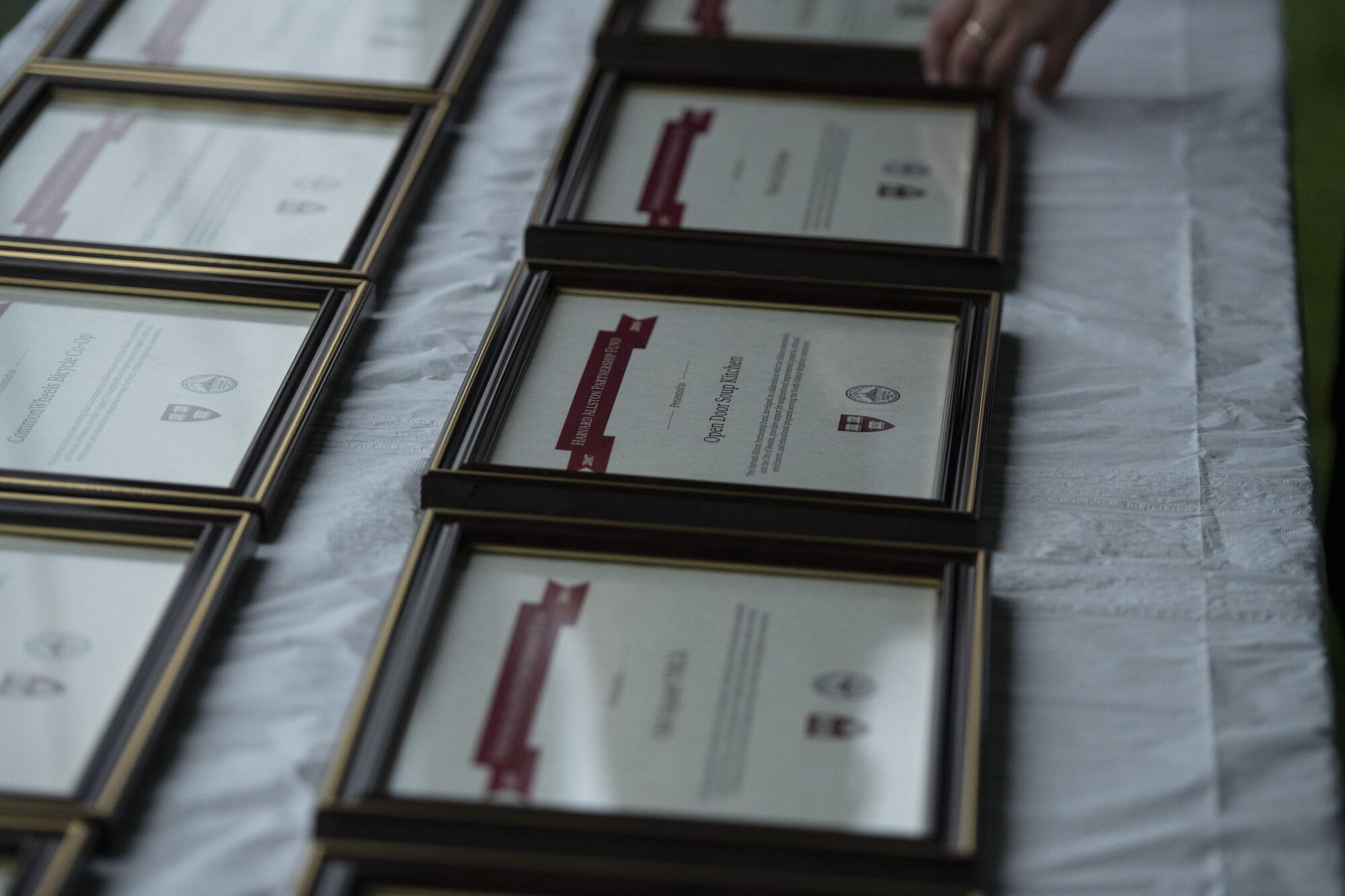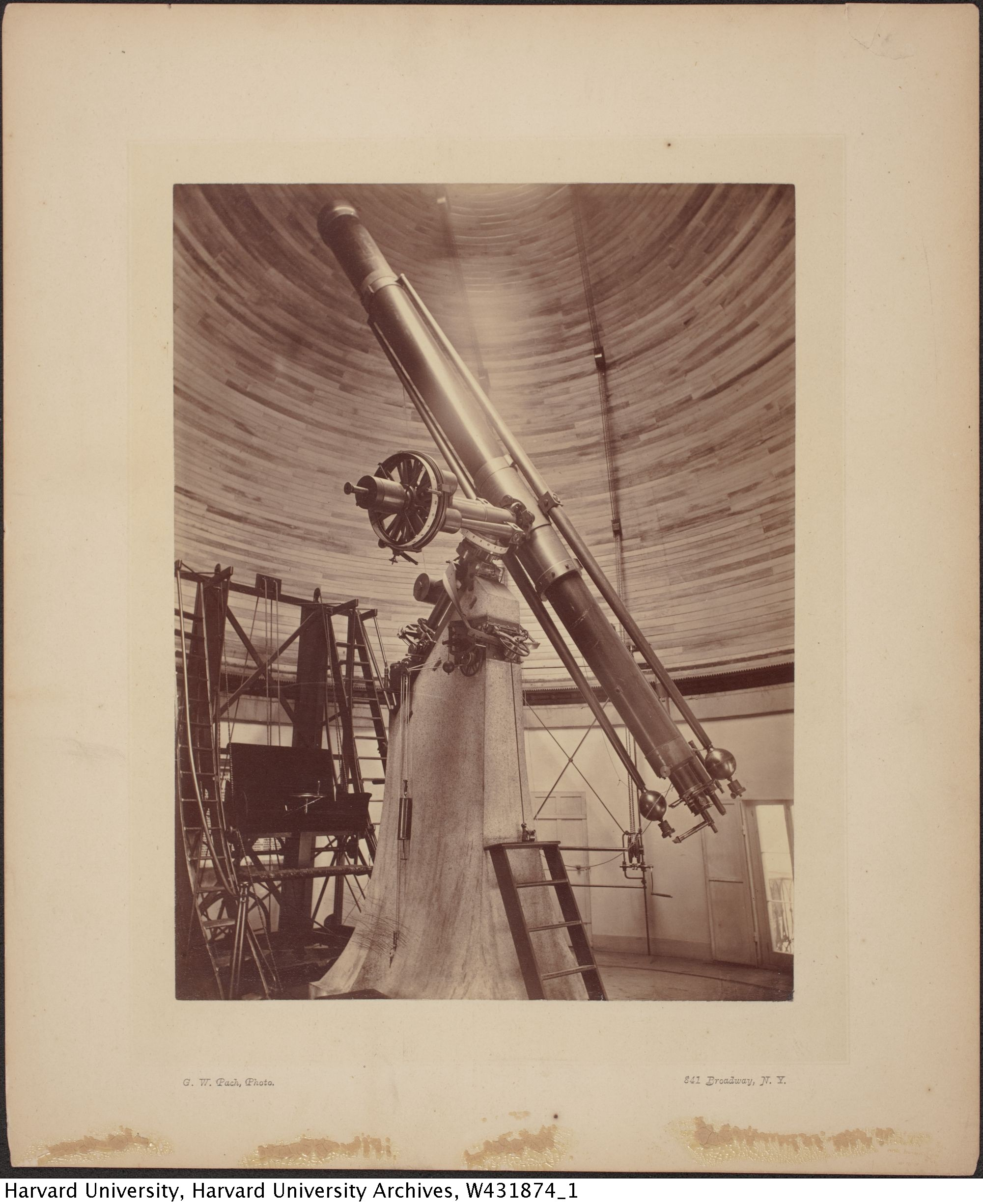Harvard College Observatory stands as a beacon of knowledge in the world of astronomy, fostering a love for the cosmos among visitors of all ages. Recently, the observatory hosted its inaugural Spanish-language night, a significant event aimed at engaging the Spanish-speaking community of Cambridge and Boston with the wonders of astrophysics education. Participants enjoyed captivating talks on topics such as gravitational waves and black holes, coupled with exciting public observatory nights that allow the community to experience stargazing firsthand. This initiative is part of Harvard College Observatory’s mission to promote diversity and inclusivity in science, as well as to establish a platform for community stargazing. With plans to host future Harvard astronomy events in various languages, the observatory is committed to making celestial exploration accessible and enjoyable to all, enhancing public engagement and interest in the universe.
The Harvard astronomical institution has made strides in providing educational opportunities that resonate with diverse communities. By organizing specialized nights focused on Spanish-speaking audiences, the observatory emphasizes its dedication to inclusive astrophysics education, making complex astronomical concepts approachable. These public observation events not only serve to demystify the universe but also aim to foster a community that appreciates the beauty of stargazing. Engaging with attendees during these educational gatherings allows scientists to share their passion for the cosmos, inspiring the next generation of astronomers. Such initiatives reinforce the observatory’s role as a pivotal public portal for exploring the intricacies of the night sky.
Harvard College Observatory: Bridging Astronomy and Community
The Harvard College Observatory has always been at the forefront of astronomical research, yet its dedication to community engagement is equally admirable. This is exemplified by initiatives like the inaugural Spanish-language public night, which aimed to bridge the gap between complex astrophysics topics and the broader community, particularly the Spanish-speaking population of Cambridge and Boston. Such events not only increase the inclusivity of science but inspire a new generation of astrophysicists like young David Castro, whose firsthand experience illustrates the observatory’s role in making astronomy accessible.
Working with local schools and community organizations, the Harvard College Observatory hopes to sustain its outreach efforts. By bringing the wonders of astrophysics education to the forefront, the observatory demonstrates its commitment to public engagement. The recent success of community stargazing events not only revives interest in space but also promotes an understanding of the universe that transcends language barriers. Furthermore, plans to continue offering events in various languages will enhance this connection and showcase the rich diversity of perspectives within the field of astronomy.
Public Observatory Nights: A Celestial Experience for All
Public observatory nights are more than just opportunities to gaze at the stars; they serve as educational platforms that ignite curiosity about astrophysics among participants. These events, especially the recent ones at the Harvard College Observatory, allow attendees to learn about celestial phenomena like black holes and gravitational waves directly from experts. This hands-on experience is essential not only for sparking interest in science but also for fostering community involvement in topics traditionally viewed as complex or niche.
The interactive format of these nights encourages questions and discussions, making science relatable to individuals of varied backgrounds. From engaging talks to guided stargazing through powerful telescopes, participants walk away with a greater appreciation of the cosmos. Such community stargazing events highlight the observatory’s mission to make science enjoyable and accessible, ensuring that everyone, regardless of their prior knowledge of astrophysics, can share in the wonder of the universe.
Astrophysics Education: Inspiring Future Generations
Astrophysics education is vital for inspiring future generations of scientists, and recent events at the Harvard College Observatory highlight this necessity. By providing opportunities for young individuals to explore the wonders of the universe, these educational initiatives play a critical role in shaping the next generation of astronomers. The enthusiasm displayed by children like David Castro during the observatory’s Spanish-language public night showcases how such experiences can ignite a passion for science at an early age.
Moreover, bringing knowledgeable speakers like Dr. Ernesto Camacho Iniguez and Dr. Tatiana Niembro Hernández allows participants to gain insights into real-world astronomical research. Their presentations demystify complex phenomena such as black holes and solar flares, making cutting-edge science accessible and engaging. This approach not only benefits the attendees but also cultivates a broader appreciation for astrophysics, encouraging more students to pursue careers in science and technology.
Community Stargazing: Connecting Through Astronomy
Community stargazing events foster a unique connection between people and the cosmos, offering memorable experiences that often lead to lasting interests in science. At the Harvard College Observatory, such events provide attendees with the chance to bond over shared explorations of the night sky. By participating in activities like telescope viewing and guided discussions, community members not only learn about celestial bodies like stars Vega and Arcturus but also build a sense of camaraderie that transcends age and background.
The observatory’s commitment to inclusivity is key to its success in community building. By hosting events specifically aimed at Spanish-speaking populations, the Harvard College Observatory ensures that all individuals feel welcome when exploring the universe. These gatherings become spaces where people can ask questions, share experiences, and engage with the mysteries of space, thus fostering friendships and collaborative spirit among astronomy enthusiasts.
The Importance of Diversity in Astronomy
Emphasizing diversity within the field of astronomy enriches scientific inquiry and community involvement. The Harvard College Observatory, with its focus on inclusive events, serves as a model for how to engage underrepresented groups in astrophysics. By acknowledging the importance of diverse perspectives, the observatory not only enhances its educational outreach but also broadens the narrative around scientific achievement and exploration.
Diverse voices in astronomy can drive innovation and creativity, leading to new discoveries and ideas. When individuals from various backgrounds, including those who are Spanish-speaking or part of other marginalized communities, are encouraged to participate in such discussions, the complexity of topics like black holes can be better understood and appreciated. This embrace of diversity fosters a sense of belonging and motivates greater participation in the sciences, ensuring that the future of astrophysics is as varied and vibrant as the universe itself.
Future Plans for Public Engagement at Harvard College Observatory
The future looks promising for public engagement at the Harvard College Observatory, with numerous plans underway to expand outreach efforts. The observatory aims to increase K-12 school visits and create partnerships with local astronomy groups, enriching educational experiences for students across the region. By bringing astronomy education directly into classrooms, they hope to spark excitement about the wonders of space and encourage more young people to explore careers in STEM fields.
Additionally, the observatory is considering mobile outreach initiatives, such as bringing telescopes to rural schools, ensuring that astronomy becomes accessible to underserved communities. By focusing on inclusivity and broadening its reach, the Harvard College Observatory is committed to fostering a love for science among diverse audiences, ensuring its legacy as a leading institution in both research and public education.
Interactive Learning: Making Astronomy Fun
Interactive learning experiences are crucial in making complex subjects like astronomy approachable and enjoyable. Events at the Harvard College Observatory exemplify this, with hands-on activities and demonstrations that captivate audiences of all ages. The recent Spanish-language night featured dynamic presentations that simplified intricate astrophysical concepts, allowing attendees to engage actively with the material.
When educational sessions involve audience participation, like live demonstrations of black hole characteristics and Q&A segments with astrophysics experts, learners retain information better and foster deeper connections with the subject matter. This interactive approach not only energizes the learning experience but also builds community as people come together to explore the universe enthusiastically.
Building a Welcoming Environment for Astronomy Enthusiasts
Creating a welcoming environment for both seasoned astronomers and casual enthusiasts is essential for the Harvard College Observatory. Recognizing that everyone brings their unique perspective to the table, the observatory emphasizes inclusivity in its outreach programs and events. By hosting public nights that cater to various language speakers and designing interactive experiences, the observatory fosters an atmosphere where individuals feel comfortable asking questions and sharing their enthusiasm for astronomy.
Moreover, encouraging casual enthusiasts to connect with experts can demystify the study of astrophysics and make it approachable. The observatory’s efforts in community outreach and public engagement demonstrate a commitment not only to preserving its rich history but also to ensuring continued relevance in a fast-evolving science landscape. As such initiatives grow, they promise to cultivate a culture of curiosity and exploration among diverse groups.
The Role of Astronomy in Advancing Scientific Literacy
Astronomy plays a vital role in advancing scientific literacy among the public. The Harvard College Observatory understands the significance of demystifying science and striving to provide accessible education. By introducing individuals to fundamental principles of astrophysics, the observatory empowers them to appreciate the universe’s magnificence while developing critical thinking skills necessary for understanding complex ideas.
Scientific literacy fosters a connection between individuals and the natural world, encouraging informed discussions about current scientific issues. By involving the community in these discussions through events like public observatory nights, the Harvard College Observatory helps demystify science and inspire curiosity, paving the way for a future where everyone can engage confidently with scientific topics.
Frequently Asked Questions
What events does Harvard College Observatory hold for community stargazing?
Harvard College Observatory hosts various community stargazing events, including public observatory nights where participants can engage with astrophysics education and view celestial objects through professional-grade telescopes. These events aim to foster a deeper appreciation for astronomy among the community.
How does Harvard College Observatory support Spanish-language astronomy education?
Harvard College Observatory supports Spanish-language astronomy education by hosting dedicated events, such as the inaugural Spanish-Speaking Public Observatory Night. During these events, Spanish-speaking researchers provide insights into astrophysics, making the fascinating world of space accessible to the Spanish-speaking community.
What is the significance of public observatory nights at Harvard College Observatory?
Public observatory nights at Harvard College Observatory are significant as they provide an opportunity for the general public to engage with astronomy while utilizing the observatory’s historic telescopes. These nights aim to enhance astrophysics education and participation in local astronomy events.
Can families participate in astronomy events at Harvard College Observatory?
Yes, families can participate in astronomy events at Harvard College Observatory. Events are designed to be inclusive and educational, encouraging participation from people of all ages, as seen in recent community stargazing evenings.
What can visitors expect to see during public observatory nights at Harvard College Observatory?
During public observatory nights, visitors can expect to see a variety of celestial objects, including bright stars like Vega and Arcturus, and, when conditions permit, other fascinating celestial phenomena. The events often include educational talks from researchers affiliated with the observatory.
How does Harvard College Observatory enhance public engagement in astronomy?
Harvard College Observatory enhances public engagement in astronomy through outreach events, like public observatory nights and Spanish-language astronomy sessions, which aim to educate the community, highlight underrepresented groups in science, and foster a love for astrophysics.
What future plans does Harvard College Observatory have for its community outreach?
Harvard College Observatory plans to expand its community outreach by increasing K-12 school visits and collaborating with local astronomy groups. There are also ideas to bring telescopes to rural schools, ensuring accessibility and relevance in astrophysics education for future generations.
| Key Points | Details |
|---|---|
| Inaugural Spanish-language night | Hosted at Harvard College Observatory, with around 50 attendees. |
| Focus on gravitational waves and black holes | Talks by researchers Ernesto Camacho Iniguez and Tatiana Niembro Hernández. |
| Historic telescope usage | Showcased Harvard’s Great Refractor, installed in 1847. |
| Cultural outreach | Event aimed at Spanish-speaking community and future multi-language offerings. |
| Interactive learning experience | Participants enjoyed interactive demonstrations and easy-to-understand presentations. |
| Plans for the future | Efforts to increase school visits and community engagement, fostering accessibility. |
Summary
Harvard College Observatory has recently embarked on an exciting initiative to engage the community through its inaugural Spanish-speaking Public Observatory Night. This event highlights the observatory’s commitment to inclusivity and education in the field of astrophysics, showcasing the rich history and diversity of science at Harvard. By offering interactive learning experiences and expanding outreach to underrepresented groups, the Harvard College Observatory not only preserves its legacy but also ensures accessibility and relevance for future generations. The observatory aims to deepen public involvement and spark curiosity about the cosmos, paving the way for a more engaged and informed public regarding astronomical sciences.








